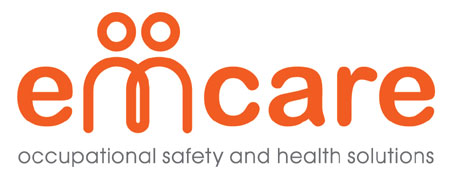Scaling mental health training across large authorities is essential to ensure staff across health and social care systems are equipped to meet the growing mental health needs of communities. However, scaling at pace and scale introduces risks of inconsistency, diluted content, and reduced impact.
To succeed, organisations must combine leadership commitment, standardised curricula, well-trained trainers, blended delivery, supervision, outcome measurement, and local adaptation. With the right framework, authorities can expand reach without sacrificing quality. Emcare’s mental health courses are designed to help employers achieve both breadth and depth.
Why Scaling Matters
Across the UK, demand for mental health support is rising sharply. Social workers, health staff, and frontline teams face increasingly complex caseloads, from crisis interventions to safeguarding. Large authorities must ensure that all staff, regardless of geography or department, have access to consistent mental health training.
Scaling training offers clear benefits:
- Wider reach and equity: Everyone in the workforce has access to the same core knowledge.
- Consistency of care: Staff respond in similar ways, reducing risks to service users.
- Efficiency: Rolling out programmes at scale reduces per-person costs.
- Cultural change: When training reaches everyone, stigma reduces, and mental health becomes embedded in workplace culture.
Yet the risks of poor planning are equally clear. Authorities often face challenges in maintaining quality while rolling out training to thousands of staff.
The Risks of Scaling Without Safeguards
Large-scale roll-outs can easily undermine the very goals they aim to achieve. Common pitfalls include:
- Inconsistent delivery: Trainers may interpret materials differently, leading to uneven quality.
- Content dilution: Modules are cut to save time, leaving gaps in critical knowledge.
- Trainer overload: A small pool of trainers stretched too thin can cause delays or rushed sessions.
- Knowledge decay: Without follow-up, staff forget what they’ve learned.
- Weak measurement: Without data, it is impossible to know whether training is having the intended impact.
These risks highlight why scaling requires a structured, evidence-based approach.
Key Strategies for Scaling Without Losing Quality
1. Leadership and Governance
Scaling requires visible commitment from leadership. Senior managers must champion mental health training as part of broader workforce strategies, ensuring adequate funding, staff time, and policy integration. Setting up a governance group to oversee implementation helps maintain consistency, set standards, and review outcomes.
2. Standardised Curriculum with Local Flexibility
Authorities should establish a core curriculum that covers essential content such as legal frameworks, crisis management, and safeguarding. Around this, flexible modules can be added to meet local needs, such as cultural competence or rural service challenges. Standardising the essentials ensures consistency while allowing for contextual adaptation.
3. Building Trainer Capacity
Train-the-trainer models are crucial to scaling effectively. By developing local trainers, authorities can distribute workload, ensure sustainability, and increase cultural relevance. Trainers should be certified, supported through supervision, and regularly evaluated to maintain quality.
4. Pilot and Phased Roll-Out
Before launching at scale, pilot the training in select areas or departments. Use these pilots to gather feedback, refine materials, and address logistical issues. A phased roll-out reduces pressure on resources and allows for continuous improvement.
5. Blended Delivery for Reach and Consistency
Large authorities often cover wide geographies, making in-person training difficult. Blended models, combining online and face-to-face delivery, extend reach while maintaining interactive elements like role-plays and group discussions. Digital tools ensure consistency in delivery, while in-person sessions embed skills in practice.
6. Ongoing Supervision and Support
Training should not be a one-off event. Staff need opportunities to reinforce and apply what they learn through supervision, mentorship, and peer support. Mental health champions within teams can act as anchors, encouraging continued practice and discussion.
7. Measurement and Evaluation
From the outset, outcome measurement must be built into the programme. Authorities should collect baseline data, immediate post-training evaluations, and follow-ups at three, six, and twelve months. Metrics should include knowledge, confidence, staff wellbeing, behaviour change, and service user outcomes. This ensures accountability and provides evidence for continuous improvement.
8. Funding and Infrastructure
Scaling requires more than enthusiasm — it requires resources. Authorities should secure sustainable funding to cover training delivery, trainer support, follow-ups, and evaluation. Infrastructure such as digital platforms, accessible venues, and protected staff time are equally vital.
9. Local Adaptation and Equity
Large authorities often serve diverse populations. Training materials should be adapted to reflect cultural and local needs, including language accessibility, geographical challenges, and service-user demographics. Engaging staff and service users in shaping adaptations ensures training remains relevant and inclusive.
10. Fidelity with Flexibility
Training quality depends on fidelity — the degree to which core content is delivered as intended. Authorities should use manuals, observation checklists, and peer reviews to maintain fidelity, while encouraging thoughtful innovation to address specific local challenges.
Evidence Supporting Scalable Mental Health Training
Research consistently highlights the importance of structured approaches to scaling. For example, the World Health Organization stresses that scaling mental health services requires strong governance, sustainable financing, and outcome monitoring.
Studies also show that when training is scaled without supervision or measurement, quality suffers. Conversely, organisations that embed supervision, blended delivery, and evaluation frameworks achieve sustainable, positive outcomes.
Blueprint for Large-Scale Roll-Out
A practical framework for large authorities might include the following phases:
| Phase | Key Actions | Safeguards |
| Planning | Leadership buy-in, governance committee, objectives and KPIs defined | Written strategy and budget secured |
| Curriculum Design | Develop core and optional modules, draft manuals, review by experts | Pilot tested with staff feedback |
| Trainer Development | Train-the-trainer programme, certification, supervision structures | Peer review and quality assurance |
| Pilot Roll-Out | Deliver training in select departments, gather data, refine content | Adjust content and logistics based on results |
| Phased Implementation | Expand delivery in waves across the authority | Regular monitoring to maintain fidelity |
| Support and Supervision | Establish mentoring networks and champions | Ongoing refreshers and check-ins |
| Evaluation | Collect baseline, post-training, and long-term outcomes | Publish results internally, refine training |
| Sustainability | Embed into policies, budgets, and induction programmes | Ensure training becomes business-as-usual |
Challenges and Solutions
- Limited Resources: Use blended formats and phase roll-outs to reduce costs and workload.
- Trainer Fatigue: Expand the trainer pool and rotate responsibilities.
- Variable Engagement: Involve staff early and show leadership support to drive buy-in.
- Difficulty Measuring Outcomes: Start with simple, validated tools and expand over time.
How Emcare Supports Authorities in Scaling Training
At Emcare, we specialise in helping organisations deliver mental health training at scale without compromising quality. Our approach includes:
- Tailored Mental Health Courses: Our mental health courses cover essential topics with flexibility to adapt to local needs.
- Capacity Building: We support train-the-trainer models, enabling large authorities to expand reach sustainably.
- Blended Delivery: Emcare offers in-person, online, and hybrid models to ensure consistency across large workforces.
- Quality Assurance: Our courses come with trainer manuals, observation frameworks, and evaluation tools.
- Ongoing Support: We provide supervision, refresher sessions, and mentorship to embed learning.
- Outcome Measurement: We help organisations track progress through pre- and post-training assessments, wellbeing data, and behaviour change indicators.
Practical Steps for Employers
- Conduct a baseline assessment of current training provision.
- Define clear objectives and expected outcomes for scaling.
- Secure funding and resources early.
- Develop a core curriculum with optional modules for local needs.
- Build trainer capacity and provide ongoing support.
- Pilot the training, gather feedback, and refine materials.
- Roll out in phases, monitoring fidelity and engagement.
- Measure outcomes consistently and use data to adapt.
- Embed training into policy, induction, and workforce strategies.
- Partner with experienced providers like Emcare to ensure quality.
Conclusion
Scaling mental health training across large authorities is both urgent and achievable. By combining leadership, standardisation, trainer support, supervision, blended delivery, and strong evaluation, organisations can expand reach without losing quality. Done well, scaling improves staff confidence, wellbeing, and service user outcomes, creating a more resilient workforce and healthier communities.
If your authority is preparing to expand mental health training and wants to maintain high quality while achieving broad reach, Emcare can help.


